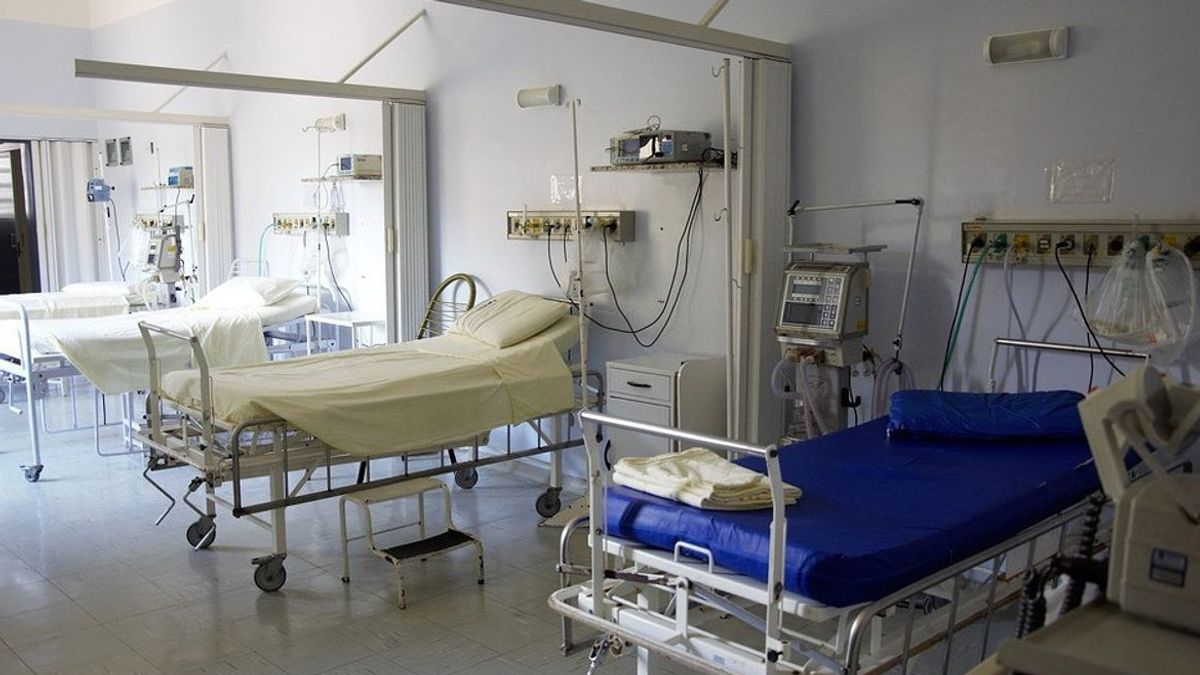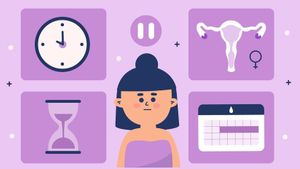JAKARTA - The addition of positive confirmed cases of COVID-19 in early 2021 is quite high. In fact, referring to data from the Ministry of Health, new cases had reached 10,000 in one day. Meanwhile, yesterday, January 11, there were 8,692 new cases.
One of the causes of the surge in positive COVID-19 patients is the large number of people who did not comply with health protocols during the long holiday at the end of 2020.
The addition of these positive cases resulted in reduced availability of care facilities. One of them is the lack of availability of beds and ICU rooms.
Health Minister Budi Gunadi Sadikin said that to meet the shortage there must be an additional 36 thousand beds on a national scale. Originally, until the end of January 2021 there would only be 15 thousand beds available.
"This is a problem we will face this week, next week until the end of January or early February 2021," Budi said in a press teleconference at the Presidential Office, Monday, January 11.
Budi said that a simple calculation to determine the number of beds for COVID-19 patients is 30 percent of the total active cases of COVID-19 in Indonesia. At present, the total active cases of COVID-19 in Indonesia have reached 120 thousand, whereas in November 2020 there were 50 thousand active cases of COVID-19 in Indonesia.
"Now we need 36,000, which is 30 percent of the 120,000. So in one month we have to increase the number of beds for COVID-19 patients from 15,000 to 36,000, "he said.
The Ministry of Health, said Budi, has appealed to all hospitals to increase the number of reallocated beds for COVID-19 patients. This is because there are many problems in many hospitals which only allocate a small number of treatment rooms for COVID-19 patients.
So, Budi asked hospital leaders to increase the bed capacity for COVID-19 patients.
"This is the fastest way to increase the number of rooms, anticipating tens of thousands of new patients who will enter, I ask all the Managing Directors of the Hospital, all hospital owners, please convert their beds that were not for COVID-19 into COVID-19, which was previously only 10 percent becomes 30 percent or 40 percent temporarily while we can face a surge that requires tens of thousands of new beds, ”he said.
In addition to adding beds for COVID-19 patients, Budi also asked people who are exposed to COVID-19, but have no symptoms (OTG) to self-isolate at home or in other places besides the hospital.
This is done to prevent the decreasing number of beds or treatment rooms for COVID-19 patients. Because, referring to the statement of the Coordinator of the Expert Team and the Government Spokesperson for Handling COVID-19, Wiku Adisasmito, the large increase in COVID-19 cases had an impact on the capacity of the ICU room that was already filled above 70 percent.
Until January 10, 2021, the number of active cases or patients requiring treatment in health facilities or independent isolation is 122,873 people.
"Please ladies and gentlemen, if for example you don't have a fever and are not short of breath, you can still do independent isolation," said Budi.
"Ladies and gentlemen, the hospital will be full because the active cases have increased by 30 percent. What I want to say is that we are still paying attention, still listening, still seeing the condition of our health workers, they are already under pressure," continued Budi Gunadi.
But if the community does not have room for independent isolation due to limited space, Budi said, his party will coordinate with the regional head.
Budi said that later he would create a mechanism so that independent isolation patients would still be monitored by doctors either by direct telephone or telemedicine.
"But that is to reduce the burden on the hospital, let our friends, our heavy siblings, be handled there," said Budi Gunadi.
Separately, PHRI Chairman and the Indonesian Employers' Association (Apindo) Hariyadi Sukamdani gave advice on how to deal with the cramped beds and treatment rooms for COVID-19 patients. Central or local governments are advised to partner with a hotel business.
This method has actually been carried out by the Provincial Government (Pemprov) of DKI Jakarta at the time of volume II of the Large-Scale Social Restriction (PSBB). The cooperation mechanism will later register hotel owners with the DKI Jakarta provincial tourism office to become their place of business as an alternative treatment for positive COVID-19 patients without symptoms or OTG.
"It has happened (using hotel rooms), since the second PSBB, it has happened, many hotels have used it," he said.
Hariyadi said, by using hotel room facilities for isolation, it is not only used independently by the community. However, there are also government-provided hotel rooms for free or subsidized.
This means that in the payment scheme for hotel facilities, the government bears the cost of care during isolation for the lower middle class and the independent costs that are directly provided by the community.
"There are two (schemes), there is a budget from the government for people whose income may not be able to be independent. On the other hand, there are also those that provide for self-paid isolation. So it is already running," he explained.
According to PHRI's observations, Hariyadi said, the number of positive cases that increased significantly had a positive impact on cash flow in the hotel sector. Even so, he did not confirm that previously this phenomenon actually made the hotel business liquidity contract quite deeply.
"We observe that the paid ones are also quite an interesting phenomenon because the number of positive cases is high, so the demand is quite increasing as well. Even though we had decreased during the second PSBB, during the transition period and during the initial period, the demand is now increasing," he said. .
The English, Chinese, Japanese, Arabic, and French versions are automatically generated by the AI. So there may still be inaccuracies in translating, please always see Indonesian as our main language. (system supported by DigitalSiber.id)













